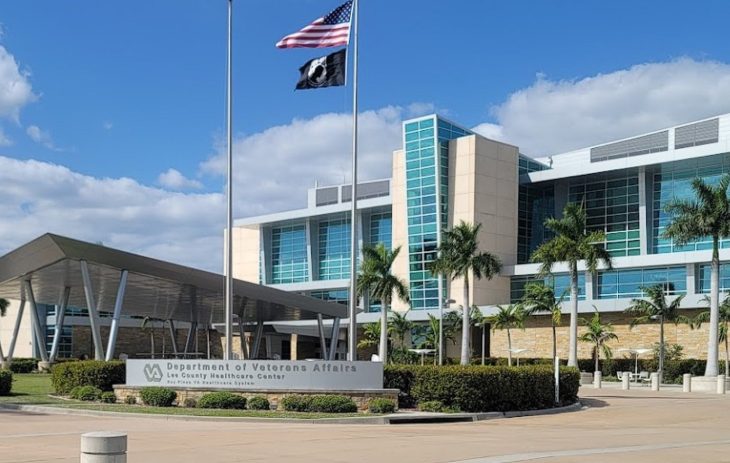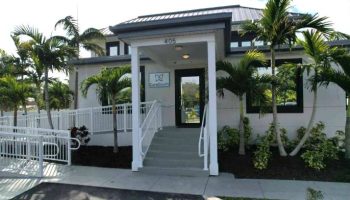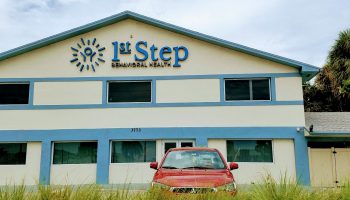About Bay Pines VA Healthcare System Lee County Clinic
Lee County VA Clinic is located in a secluded corner of Cape Coral, near the Caloosahatchee River in Florida. They’re part of the Bay Pines VA Healthcare System. This facility provides a full range of behavioral health care for veterans and their families. This includes substance use treatment, mental health support, and PTSD care. They also provide social support services and telehealth care.
Their substance use care includes inpatient and outpatient treatment. Inpatient services may include supervised withdrawal management and inpatient therapy. This program takes place in a structured setting in their residential facility. Medication support is provided as necessary to facilitate lasting healing.
The outpatient care is suitable if you’re dealing with moderate to mild substance use. It can also serve as a step down treatment after inpatient therapy. It focuses on recovery skill building and coping strategies that encourage sober living and relapse prevention. It involves intense group and individual therapy sessions alongside educational classes on substance use.
The beauty of it is that you won’t have to live in their residential facility. Sessions are designed such that you can continue your job or family obligations while receiving treatment. Thanks to their secured telehealth support, you can even receive therapy virtually. They offer both video conferencing and home telehealth services.
Their PTSD care provides healing to veterans with symptoms of trauma. Victims of military sexual assault may benefit from this program as well. You’ll first undergo a thorough evaluation to assess for PTSD. Subsequently you’ll receive personalized treatment that can include trauma focused individual therapy and group sessions. They offer psychiatric and psychological counseling and medication management as well.
Their full spectrum of behavioral health care incorporates social support services like unemployment assistance and housing support for homeless veterans. You can access broader support services in their social work department. These range from financial assistance to home health care, transportation, and legal aid.
A particularly unique program available in this facility is smoking and tobacco cessation. They offer strategies to complement optional nicotine replacement therapy prescribed by your primary doctor. These may include FDA approved meds to manage nicotine withdrawal and the urge to smoke. They back this up with in-person and phone counseling to speed up your recovery. There’s even a Tobacco Cessation Quitline for counseling and cessation strategies.
You can pay for your treatment through Medicaid, Medicare and TRICARE. They accept private insurance and out-of-pocket payments as well. Financial aid is available.
Levels of Care
-
Outpatient
In outpatient therapy, you’ll attend therapy sessions several times each week while living at home. This is ideal if you have a strong support system and a lower risk of relapse. Outpatient treatment offers flexibility to maintain work, school or family obligations.
-
Aftercare
Aftercare programs provide ongoing support after you complete a rehab program. They may include several components to help you maintain sobriety including therapy, community support groups and relapse prevention strategies. This gives you a network of resources as you reintegrate into your daily life.
-
Dual Diagnosis
Dual diagnosis programs address substance use disorders and co-occurring mental health conditions simultaneously. This integrated approach to care improves the likelihood of long term recovery and stability by addressing the root causes of addiction.
Detox Service Setting
-
Outpatient Detox
Outpatient detox gives you access to medically supervised withdrawal services while still allowing you to live at home. You’ll attend a clinic for treatment and monitoring. This flexible option is suitable for those with mild to moderate withdrawal symptoms who have strong support systems.
Programs
-
Adult (18+)
Adult programs address the substance use and life challenges specific to adults. Therapists can deliver sessions in individual, group and family settings. Services often include job support and life skills training in a structured environment.
-
Alcohol Detox
Alcohol detox programs offer medical support to help individuals withdraw safely from alcohol. Your care team may use medications to ease your symptoms and provide medical monitoring to address complications.
-
Cognitive Behavioral Therapy
Cognitive behavioral therapy focuses on changing harmful thought patterns and behaviors associated with addiction. You’ll learn healthier coping mechanisms by identifying and replacing negative thoughts. This improves your emotional resilience and decreases your relapse potential.
-
Exercise Therapy
Exercise therapy incorporates physical activity into treatment to promote mental and physical health. Regular exercise reduces stress, boosts mood and enhances your overall wellbeing. This can give you a positive outlook and lower your relapse risk.
-
Men
Men's programs address substance use while also considering the social pressures, family roles and mental health concerns that are specific to men. You’ll learn healthy coping mechanisms as you build emotional resilience and develop communication skills.
-
Military / Veterans
Military and veteran programs offer specialized support for clients who served in the armed services. Programs focus on reintegration and healing within a structured and supportive environment that acknowledges the unique struggles of military life.
-
Opioid Detox
Opioid detox uses medications to ease severe withdrawal symptoms. It also includes medical supervision to help you manage potential complications. These services allow you to stabilize and begin a recovery plan.
-
Seniors (65+)
Senior programs address the unique needs of older adults like chronic pain, grief and isolation. Programs include peer support and medical oversight for age related health concerns. The goal is to improve quality of life and promote sober aging.
-
Women
Women's programs offer a safe and supportive space to focus on gender specific issues such as trauma, family roles and mental health conditions. Therapists tailor the sessions to address women's needs and foster empowerment in a healing and nurturing environment.
-
Young Adult (18 - 25)
Young adult programs are designed for individuals who are transitioning into adulthood. Topics of discussion typically include identity, independence and peer relationships. Providers may also offer life skills training and career support.
Payment Options
- Payment Assistance
- Medicaid
- Medicare
- Military Insurance
- Private Insurance
- Self Pay
Accreditations
-
 SAMHSA
SAMHSA
-
 Joint Commission
Joint Commission
Contact
2489 Diplomat Parkway East
Cape Coral, FL 33909





